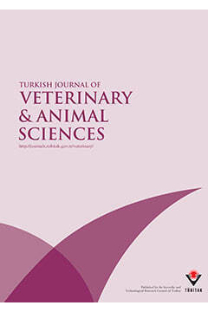Chemical, enzymatic, and antioxidant enrichments of full-fat soybean and sunflower meal by Bacillus subtilis fermentation using a solid-state bioreactor
Bacillus subtilis, nutrient and chemical enrichment, fermentation, full-fat soybean, sunflower meal,
- ISSN: 1300-0128
- Yayın Aralığı: Yılda 6 Sayı
- Yayıncı: TÜBİTAK
Sujata BHAVE, Rahul KOLHE, RANJAN MAHADEVASWAMY, CHANDRAKANT BHONG, SAMIR JADHAV, Saba NALBAND, DATTATRAY GANDHALE, DUSHYANT MUGLIKAR
First evidence of holocrine secretory mechanism in granular ducts in mouse mandibular gland
Vlad LUCA, Bianca MATOSZ, Flavia RUXANDA, Cristian RATIU, Vasile RUS, Viorel MICLAUS
Mehmet TUZCU, Mehmet IRMAK, Patrick Brice Defo DEEH, James KOMOROWSKI, Armağan HAYIRLI, Meltem YARDIM, Kazım ŞAHİN, Cemal ORHAN, Nurhan ŞAHİN
Funda Yilmaz EKER, Kamil BOSTAN
Zuzana CADKOVA, Ivana JANKOVSKA, Stanislava NECHYBOVA, Barbora HORAKOVA, Iva LANGROVA, Darina CHODOVA, Romana KREJCIROVA, Martina SASKOVA, Eva TUMOVA, Jaroslav VADLEJCH, Roman SVEJSTIL, Ivana KNIZKOVA
ARMAĞAN ÇOLAK, Muhammad Furqan Asghar CHACHER, Mehmet CENGİZ, Armağan HAYIRLI
Phylogenetic relationships of native Turkish cattle breeds using microsatellite markers
Ayşe IŞIK, Aysun ÇAMLIDAĞ, Yusuf ÖZŞENSOY, Mehmet NİZAMLIOĞLU, Vahdettin ALTUNOK, Zafer BULUT, Müge DOĞAN, Ercan KURAR
